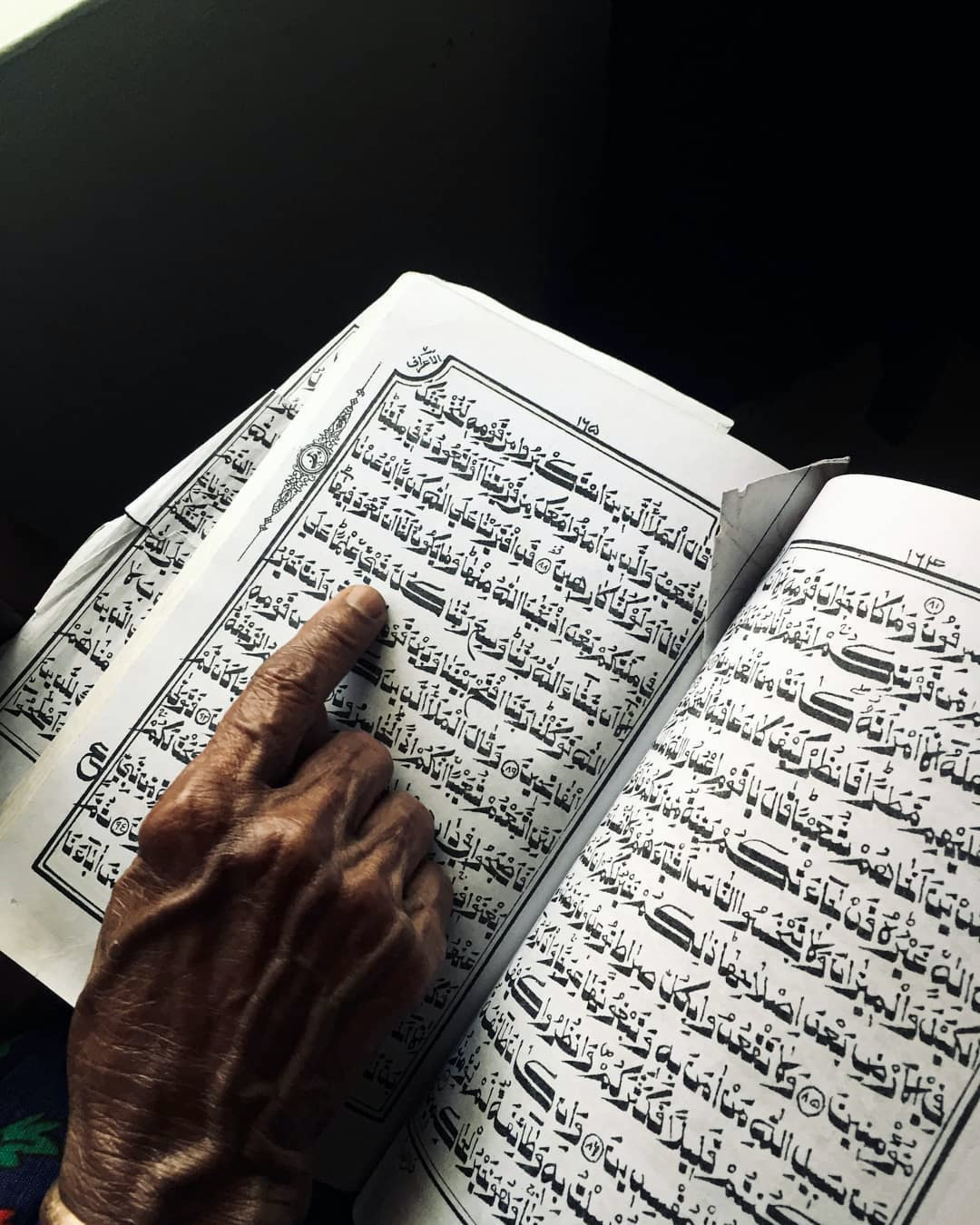
The six pillars of Iman
The pillars of Faith is one of the foundations for Muslims. The word Iman comes from Arabic and means 'faith' in English. The six pillars are: Belief in Allah, the Angels, the Prophets, the sent Books, Day of Resurrection and fate (Qadr).
 The Prophet (ﷺ) said:
"Iman means that you believe in Allah, in His Angels, in His Books, in His Messengers, in the Day of Judgment and in the Divine Decree (Qadr) in its good and evil."
[Sahih Muslim 8a]
The Prophet (ﷺ) said:
"Iman means that you believe in Allah, in His Angels, in His Books, in His Messengers, in the Day of Judgment and in the Divine Decree (Qadr) in its good and evil."
[Sahih Muslim 8a]
1. Belief in Allah
This pillar of Iman includes belief in Allah's existence, His Names/Attributes, His Lordship and His right to be worshiped alone. So it concerns the concept of Tawheed (Unity of Allah).
A person must accept everything from Allah to be able to fulfill this pillar of Faith. The knowledge about Allah comes directly from the Quran and Sunnah.
2. Belief in the Angels
The Angels are a creation of Allah who worship Him. They differ from humans and jinn in that they have no free will. Their job is to obey Allah in every command. That's what they were created for by Allah.
Belief in the Angels includes belief in their existence, in their attributes, made known Angels (Jibreel and Mikael etc.) and the deeds they perform of which we have been informed.
3. Belief in the revealed scriptures
Muslims believe that Allah has sent down Books. These are the Zabur, (Original Torah) Tawrah, (Original Bible) Injeel and Quran. Allah sent those Books to the followers of specific Prophets. After some time, those Books were corrupted by the people, so Allah sent down the Quran as a last Revelation and Guidance for humanity.
 Verily! It was We who sent down the Reminder (the Qur'an), so We also will watch over it (as to changes, twists, additions, or omissions).
Verily! It was We who sent down the Reminder (the Qur'an), so We also will watch over it (as to changes, twists, additions, or omissions).
(15:9 Quran)
 Say: We believe in Allah and that which He sent down to us and that which was given to Abraham, Ishmael, Isaac and the tribes and that which was given to Moses and to Jesus, and that which was given from their Lord to the Prophets. We make no distinction between them, and to Him we have submitted ourselves.”
Say: We believe in Allah and that which He sent down to us and that which was given to Abraham, Ishmael, Isaac and the tribes and that which was given to Moses and to Jesus, and that which was given from their Lord to the Prophets. We make no distinction between them, and to Him we have submitted ourselves.”
(2:136 Quran)
4. Belief in the messengers
This is a pillar that distinguishes Islam from other religions. This is because Judaism and Christianity do not believe that 'Isah (Jesus) is a Messenger of Allah.
The Christians believe that Jesus is a son of God. Islam opposes that belief by believing Jesus is a Prophet of God. He want sent to the Children of Israel (Benu Israel) to proclaim the belief and worship of God alone. Muslims believe in all the Messengers of Allah.
So in Islam it is an obligation to believe in all Messengers. Leaving off any Prophet or Messenger constitutes to disbelief in Islam.
5. Belief in Day of Resurrection
It is also a pillar of Iman to believe in the Day of Resurrection. In Islam, Muslims believe that everyone is called to account for what he or she has done on earth. They believe in the punishment of Hell for those whom Allah is not pleased with, and Paradise for those whom Allah is pleased with.
The Day of Judgement is true and we will all be reckoned for our deeds. A Muslim must believe in all the events that will take place on that Day.
 (O Muhammad), say: "Shall we inform you of the greatest losers in regard to the deeds?" These are those whose deeds were nullified during worldly life, thinking that their deeds would bring rewards. Those are the ones who deny the Signs of their Lord and the meeting with Him. So their works are in vain and on the Day of Resurrection We will give no weight to their deeds.
(O Muhammad), say: "Shall we inform you of the greatest losers in regard to the deeds?" These are those whose deeds were nullified during worldly life, thinking that their deeds would bring rewards. Those are the ones who deny the Signs of their Lord and the meeting with Him. So their works are in vain and on the Day of Resurrection We will give no weight to their deeds.
(Surah Kahf verse 103-105)
The belief in Scale (Al-Mizan) is also part of this pillar. The deeds of the people are placed on a Scale. When the good deeds outweigh the bad deeds, then he is the winner.
 And the weighing (of the deeds) on the Day (of the Reckoning) will indicate the actual (balance). The (true) victors are those whose scales (with hasanat) weigh more heavily.
And the weighing (of the deeds) on the Day (of the Reckoning) will indicate the actual (balance). The (true) victors are those whose scales (with hasanat) weigh more heavily.
(7:8 Quran)
Day of Resurrection also concerns the case of The Bridge (Al-Sirat) which every Muslim must pass through. It is thinner than a hair and sharper than a sword. Some will cross it as quickly as a blink of an eye, others will crawl over it.
 Prophet Muhammad (ﷺ) said:
"Some of the believers will cross The Bridge with the speed of an instant, some will be as fast as the light, a strong wind, swift horses or shecamel. Some will be safe without any damage, others after some scratches, and others fall from The Bridge in Hell."
[Sahih al-Bukhari 7439]
Prophet Muhammad (ﷺ) said:
"Some of the believers will cross The Bridge with the speed of an instant, some will be as fast as the light, a strong wind, swift horses or shecamel. Some will be safe without any damage, others after some scratches, and others fall from The Bridge in Hell."
[Sahih al-Bukhari 7439]
The people who fall from The Bridge in Hellfire are believers who will later go out of it. They will later be taken out again by believers who have known them from worldly life. Hypocrites also fall into hellfire and never get out.
How fast or slow a person crosses The Bridge depends on light. And that light is much through good deeds, or little through sins. The hypocrites will ask believers for light on that Day. But that will not be given to them.
 On that Day the hypocrites among men and women will say to the believers: “Wait for us! Let us use some of your light.”
On that Day the hypocrites among men and women will say to the believers: “Wait for us! Let us use some of your light.”
(57:13 Quran)
6. Belief in Destiny (Qadr)
The sixth pillar of Iman is to believe in Destiny. Everything we do is already written. Destiny is also known as Al-Qadr. It means that Allah Knows of what is yet to come.
Thus, Muslims believe that Allah Knows what will happen in the future. That means He Knows what our plans and actions will be without it having to be passed. Al-Qadr consists of bad and good. There are good and bad moments that will happen in the future. A Muslim believes that Allah is Aware of all the good and bad that will happen.
To deny Qadr is disbelief. For that would mean Allah is unaware of what is yet to come. But Allah knows everything and nothing escapes His Knowledge.
 Prophet Muhammad (ﷺ) said:
"Allah Wrote the Destiny of creation fifty thousand years before He Created the heavens and the earth. And His Throne was over the water."
[Sahih al-Bukhari 7439]
Prophet Muhammad (ﷺ) said:
"Allah Wrote the Destiny of creation fifty thousand years before He Created the heavens and the earth. And His Throne was over the water."
[Sahih al-Bukhari 7439]


